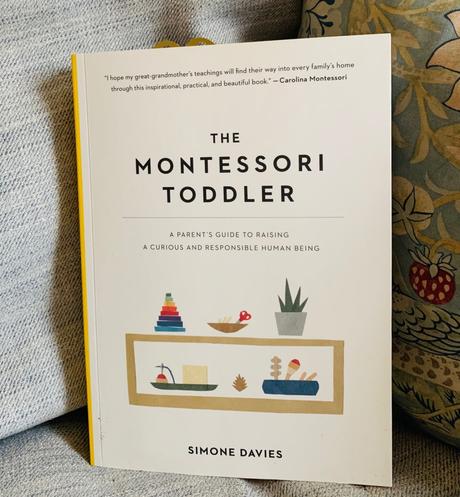
I realise that this book is a bit of a departure from the sort of thing reviewed in my last few posts (which I realise were months ago, hello 2021), but this is the first book I have read all the way through since I think October - so I'm reviewing it. Honestly having a child just completely changes your whole inner life as well as your outer life, and your reading habits. Oh and the pandemic and lockdown.
All of the above means that my brain has just not had the capacity for dedicated reading time, let alone spending time on writing reviews. Personally I always need time to 'recover' from stressful days, which usually manifests itself in watching TV or just sleeping. In order to focus on reading I often need time first to chill out a bit, but then by that point I've got to go to bed because I've got to get the little one up in the morning and that's a whole thing. Parenting is wild.
But as I talked about on Instagram, I really really miss reading and I am starting to feel the effects of not putting aside the time for it. I feel less focused in general, less aware of myself, less 'centred'. Reading makes me feel calm in a world of chaos. So too does stopping to think about how I choose to parent, how I want to parent, and how I want my child to experience his life with me and his father. I had a vague interest in Montessori principles already, and so when I came across The Montessori Toddler I knew it was something I wanted to read.
I didn't know a huge amount Montessori when I started reading, beyond the fact that at Montessori schools or nurseries there is not much structure and the children have a lot of freedom. But as I started to read this book I realised there is so, so much more to it than that. Now that I've read the whole thing I'd say that really the key principle is being a gentle and sympathetic parent, and working with our child rather than against them. In the introduction Simone Davies states that we often need to rethink the way we look at toddlers, and rather than seeing them as sometimes 'difficult' or 'challenging', we need to stop and look at things from their perspective and work out why they are behaving a certain way, and how we can work with them to improve things. I've realised, over the 18 months that I have been a parent, that I am passionate about understanding children as much as possible, and moving away from the mindset of them being 'naughty' and in need of 'lessons' or 'punishment'. An idea I loved in this book is that we cannot allow all behaviour, but we can allow all feelings. We must respect our children and work with them to embrace and understand their feelings. We must communicate with them and explain that their feelings and experiences are valid, and that we are there to support them (and yes discipline them, but gently and with purpose).
I am fascinated by the concept of 'reparenting' - where we examine our own experience of being parented as we work out how to parent our own children. It is not always easy, but it is hugely beneficial to think back to our childhoods and assess what we liked about our parents' styles/choices/actions, what we didn't like, what helped us, what wasn't ideal. Even if we had wonderful and supportive parents it is still helpful to look back and examine what effect their parenting choices had on us, for better or worse - and to consider those as we parent our own children. This process enables us to be as open and empathetic as we can with our children, and aims to 'improve' parenting down the generations - breaking bad habits and continuing good ones. We can think back to what comforted us when we were little, and apply this to our children when they are upset - especially when their behaviour is overwhelming or upsetting to us (like this morning when my toddler did not want to get dressed because he was still a bit tired and therefore grumpy and resistant).
Simone Davies does not explicitly name this concept as reparenting, but she discusses the same principles with clarity and insight. She reminds us to put ourselves in the place of the child and remember what it was like to be that age. We think we've forgotten, but when we concentrate it's alarmingly easy to remember being small, and what that felt like. It is not always easy. But it will make us better parents.
While I do not subscribe to every single principle in The Montessori Toddler (for example Davies thinks that screens have only negative effects on children, with which I disagree), overall I embraced the approach in terms of connection, teaching, and especially practices like showing children how to be confident and independent while always being there to support them. It is one of the most insightful books I've come across and I'd recommend it to any parent of toddlers, even if you don't want to go the whole hog with Montessori. The principles around understanding and empathising with our children are universal, I think. It's also written in a very accessible way and broken down into sections that you could dip in and out of, along with nice little illustrations (like the cover) and lots of resources for more information.
I think I will end up reading a few more parenting books along the way, but I have actually just started reading some fiction, again, finally, so that will be more of that next time.
*
Published by Workman Publishing in 2018 (paperback edition pictured above).
Available from Foyles, Wordery, and Blackwell's (affiliate links).
